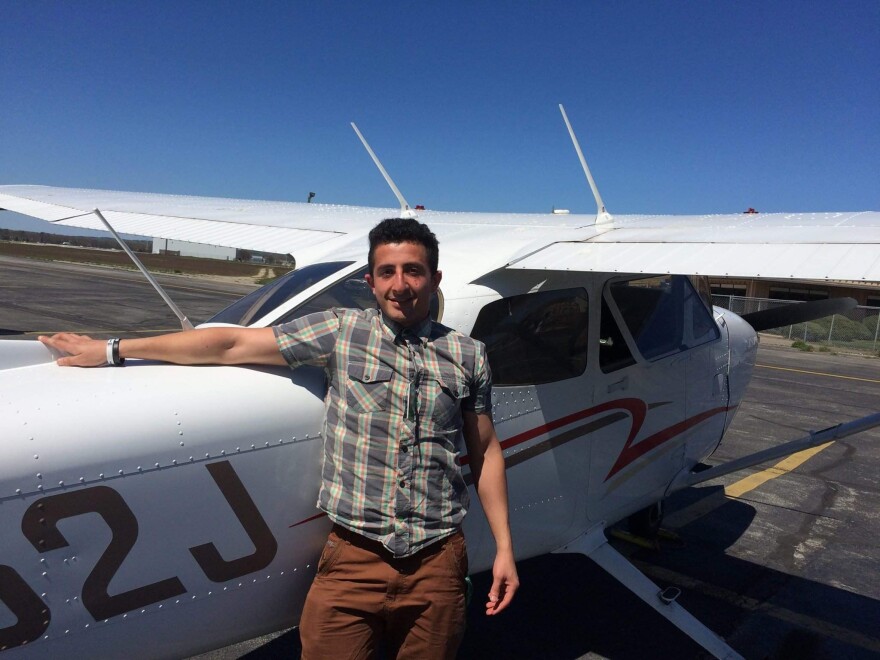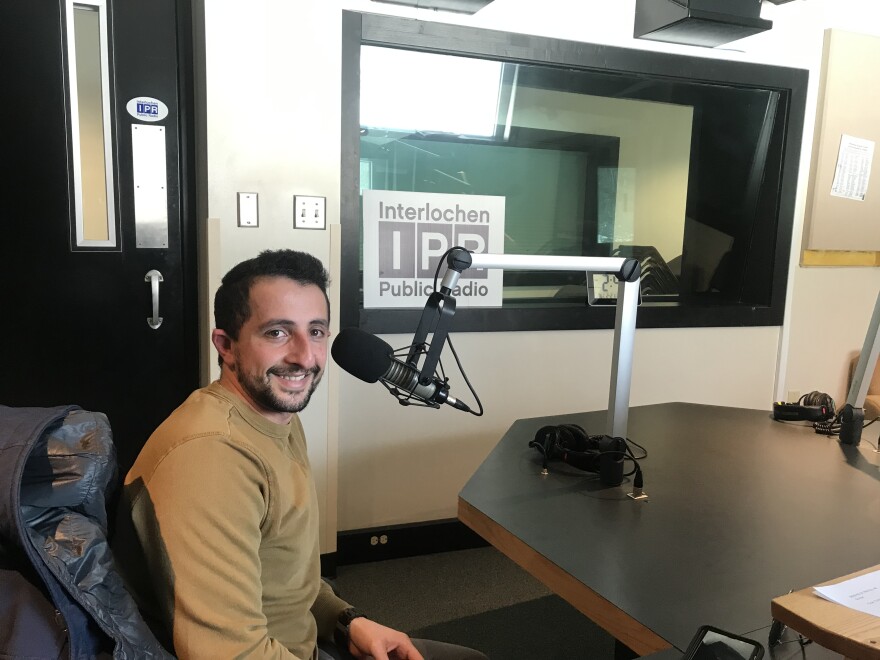For many Americans, their first insight into Afghan history and culture came from Khaled Hosseini’s 2003 book, “The Kite Runner.”
The book describes the brutality of the Taliban’s reign starting in 1994 that only came to an end as a result of U.S. military action in 2001 following the 9/11 attacks.
For Traverse City’s Edris Fana, it's a deeply personal story.

Edris was just 11 days old when his family fled Kabul, the capital of Afghanistan, as rockets rained down on them.
“My parents had to leave Afghanistan because civil war broke out in 1994 when I was 11 days old,” he says. “Our house was right in the middle when the two sides starting shooting rockets at each other... My parents say it was the worst day of their lives. They could no longer predict what would happen.”
Altogether 40 members of his family fled, including aunts and uncles and Edris’ grandfather who had been injured in a rocket attack and was pushed in a wheelbarrow to escape. Two of his uncles were doctors who helped provide medical care.
After a harrowing journey, they crossed the border into Pakistan where they would spend almost a decade as refugees in Islamabad. Edris’ father, who had been the Chief Financial Officer at a big hospital in Afghanistan, supported the family by selling sundries in a little storefront. Life was hard.

“Sometimes the police would pick up every Afghan on the street… We would have to go to the station and my Dad would come back all purple,” says Edris.
But for a small child, life inspired Edris to look to the sky where he first developed his dream of becoming a pilot.
“In Pakistan, our house was very close to the airport. Every time a plane took off it would be over our house. While I was flying kites, I would see the bottom of the plane and wonder what it would be like to be a pilot,” he says. (Listen to the interview for Edris’ wonderful description of flying kites, “one of the best sports,” in that part of the world.)
After years of exile, Edris and his family were able to return to Afghanistan in 2003, confident that “we were going someplace better, where we could be part of reform.”
What had changed? Following the 9/11 attacks, U.S. forces had ended Taliban rule and helped to bring in a new Afghan government and constitution. Although much of the country was destroyed and, according to Edris, looked like “chicken scratch,” he was ready to begin anew.
With Afghan public schools in shambles, Edris and his brother fortunately found a place at a new International School of Kabul begun by American aid workers.
“All classes were in English, most taught by Americans. It took two hours each way for me and my brother to get to school. We were up at 5 a.m. everyday, but I had perfect attendance,” Edris recalls proudly. (Today, because of security threats, the school no longer exists.)

Edris and his family lived modestly on the outskirts of Kabul, their father working for an NGO and their mother heading a small organization to train deaf girls. But life remained dangerous as Taliban attacks started to increase. It was thus with considerable relief that Edris and his brother were accepted into American colleges.
Edris found a fairly surprising place to pursue his childhood dream of becoming a pilot: Northwestern Michigan College in Traverse City.
Although “just” a community college, NMC has one of the most respected Federal Aviation Administration-approved flight training programs in the country. Almost 20 planes used in the program crisscross northern Michigan skies more than 300 days of the year.

Instructors include military “Top Guns” who have returned to this area and are now giving back to the community. In fact, one of Edris’ flight instructors and mentors was Brigadier General Scott Dennis who served as the U.S. Air Force commander in Kandahar from 2011-2012.
Edris is a natural leader, and he excelled at NMC. He became the first non-American to become president of the NMC Student Government Association and had the honor of speaking at NMC Commencement in 2015. His message to graduates?
“Take advantage of the opportunities presented by life — including education — because I can say from personal experience that many young people live in countries where such gifts are truly scarce.”
Today, Edris has his commercial pilots license, is working full-time at a local resort, and is finishing up an undergraduate degree from Ferris through NMC’s University center.

His parents remain in Kabul and he carefully follows what is happening in Afghanistan. Recent ceasefire negotiations between the U.S. and the Taliban create opportunities for peace but he is also concerned over what might happen when U.S. troops are withdrawn. After experiencing directly the disastrous effects of fighting in Afghanistan, Edris knows that renewed civil war will only bring more suffering.
But Edris has hope for a better future in Afghanistan. He notes that the country is 5,000 years old and that before 1980, Afghanistan flourished economically and socially. The 1964 Afghan constitution granted women equal rights; 40 percent of doctors were female; his mother was trained as a nurse.
Regarding his own future? “I’m still 25. I hope I do good and that I leave a change behind me so that when people remember me, it’s for something good that I did and not just as someone who came from a third-world country whose mindset never changed. My life story is an empowerment for me, pushing me to work harder and better.”
This is the last of a series of Our Global Neighborhood stories. Click here to view other stories in the series.


